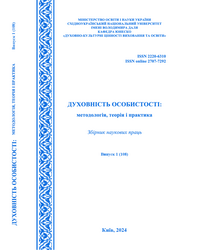SCAFFOLDING AND UNSTRUCTURED PLAY AS A METHOD OF CORRECTION OF ADHD IN CHILDHOOD: A REVIEW OF RESEARCH
DOI:
https://doi.org/10.33216/2220-6310/2024-108-1-119-131Keywords:
pediatrics, attention deficit/hyperactivity disorder, psychological correction, unstructured play, scaffoldingAbstract
Attention-deficit hyperactivity disorder (ADHD) affects children and adolescents worldwide and is associated with negative life outcomes and socioeconomic costs. First-generation treatment of ADHD was predominantly pharmacologic; however, an improved understanding of the biological, psychological, and environmental factors that contribute to ADHD has expanded the possibilities for non-pharmacologic treatment. The aim of the study is to determine the effectiveness of scaffolding and unstructured play in the correction of ADHD in childhood. ADHD is characterized by significant comorbidities, and the course and symptoms of the disorder and comorbidities can fluctuate and change over time. Children with ADHD often experience sleep problems, such as difficulty falling asleep and staying asleep. The approach to managing children with ADHD is often to use medication alone without providing the additional psychosocial support that is desperately needed. Much more work is needed in terms of social care and support for both the child and the family raising them. Mothers of children with ADHD demonstrate lower self-efficacy and lower sensory responsiveness. In addition, in mothers of children with ADHD, less sufficient executive functioning abilities were associated with higher sensory response, anxiety, and lower parental self-efficacy. The positive impact of unstructured outdoor play on physical activity and cognitive development has been shown. It is necessary to establish universal definitions of outdoor play and develop standardized outcome measures. Conclusions. Scaffolding and unstructured play are among the effective options for non-drug correction and need to be more actively implemented in the practice of managing children with ADHD.

